Our Link With Japan - The Llanito Lecturer Bringing Students To Gibraltar
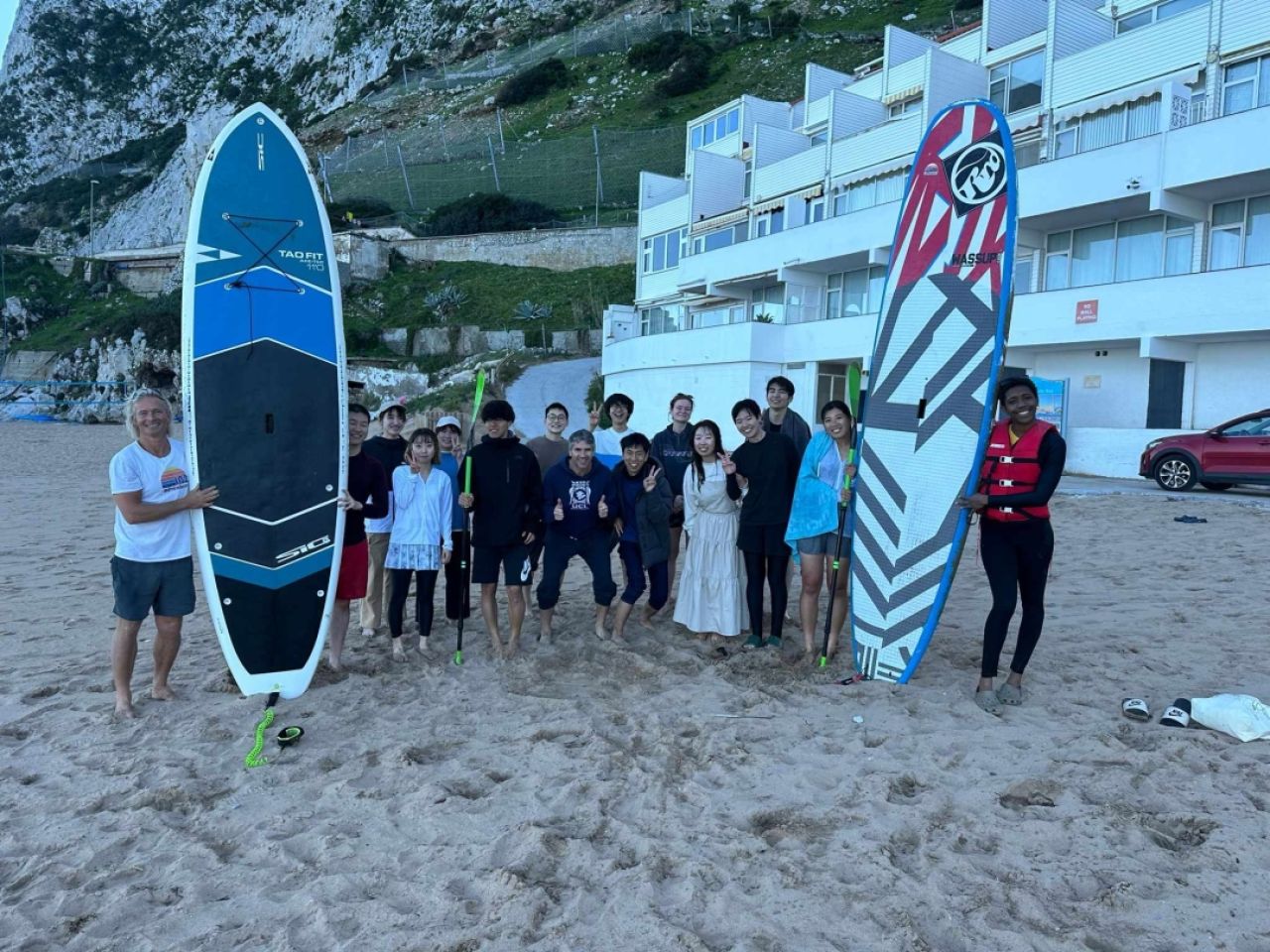
A Gibraltarian lecturer has set up a study abroad programme for Japanese students who wish to learn English in Gibraltar.
David Chevasco, who works at Chiba University, an hour away from Tokyo, has now brought over four cohorts of students who have spent three weeks on the Rock learning English at the University of Gibraltar and taking part in leisure and educational activities.
We caught up with David to learn more about the programme and to explore his family links with Japan and what life is like there for a Llanito abroad.
David, who was born and schooled in Gibraltar, has been living in Japan, on and off, for around ten years. He first went there as a backpacker and met his wife. The couple moved to Málaga for a while and David worked as the Director of Studies at a language school. Both his children were born in the coastal Andalusian city but they decided to move to Japan and look for work.
After a Master’s degree in TESL from University College London, David secured a job at Chiba University.
From this moment it was clear to him that he wanted to combine his English teaching with his home country: “The moment I had a full-time position in Chiba I decided I wanted to create a study abroad programme that would bring students to Gibraltar.”
So, back in 2020, David plunged into the planning and organisation required to create the three-week-long intensive English course for undergraduates from scratch.
“I bring between 12 to 16 students and come over twice a year - the first group come in March and a second group in August. For the August visit my family also accompanies me so it’s great because I manage to combine a visit to my home with my job,” he says.
The University of Gibraltar facilitates accommodation for the students and their language centre provides the tuition. On weekends the students, many of whom have never left Japan before, go on day trips to places like Granada, Sevilla and across the strait to Tangier.
“We’ve also had a tapas experience, a stand up paddle boarding session in Sandy Bay, a dolphin-spotting trip in the Bay and a visit to several Upper Rock tourist sites,” he says, adding, “It’s a fully packed schedule and students are encouraged to take the bus and explore town so they fend for themselves and use English.”
“When I start selling the idea to them, none of them know where Gibraltar is. I offer some initial guidance sessions to students who might be interested in the course and show a video of the Rock and give them a talk about all the activities. I tell them they can visit Spain and Africa so it’s something different for them, something perhaps more exotic than some of the other destinations,” he explains.
For many of the students it’s the first time they’ve been out of Japan - in fact, many of them need to acquire a passport specifically for this trip.
“Prior to coming it’s a lot of organisational work that I have to fit around my other duties. For example, I deliver about twenty courses a year and have around 600 students in total,” he says.
The policy of the previous Chiba University president was that every student had to undertake a period of study abroad so the institution created several programmes - David explains that this ethos is still in place today and study abroad contributes two credits to a student’s degree.
David says that his students are impressed by the sight of the Rock when they arrive and are often surprised by what they encounter: “It’s all very different for them - there’s a lot of variety here. When you go to Japan to a supermarket, you find Japanese products whereas here you can find Japanese food and everything else…they wouldn’t have expected us to be so international because Japan itself isn’t that international.”
He explains that English teaching by natives in Japan uses a different method in that the teachers don’t speak English in class - instead, the lesson is delivered in Japanese. David, like other English speakers, bucks the trend by giving all his classes in English.
He notes that the traditional, native approach can have negative outcomes:“Many Japanese students have learnt grammar and some rote memorisation but they’ve never used the language as a communicative tool.”
While he and his mixed race children have faced some passive discrimination, David is keen to stress the positives of living in Japan: “It’s very safe, so my kids can walk to school. Chiba is where the Tokyo Disneyland is based so we’re about an hour or hour an a half by train from central Tokyo. I’m lucky to live near the sea, it’s less stressful living away from a big city.”
At home, David and his family enjoy the food and culture of their mixed heritage by marrying the far East with the Med in a home diet of sushi, pizza, sandwich mixtos and dishes they grew to love during their time in Málaga like churros and tortilla.
As befits a language teacher, David is also very interested in Gibraltar’s linguistic landscape. In fact, his thesis on ‘Contemporary Bilingualism Llanito and Language Policy in Gibraltar: A Study’ was published by the University of Cádiz press a few years ago. He’s also planning to bring out a collection of short stories about growing up in Gibraltar so watch this space!
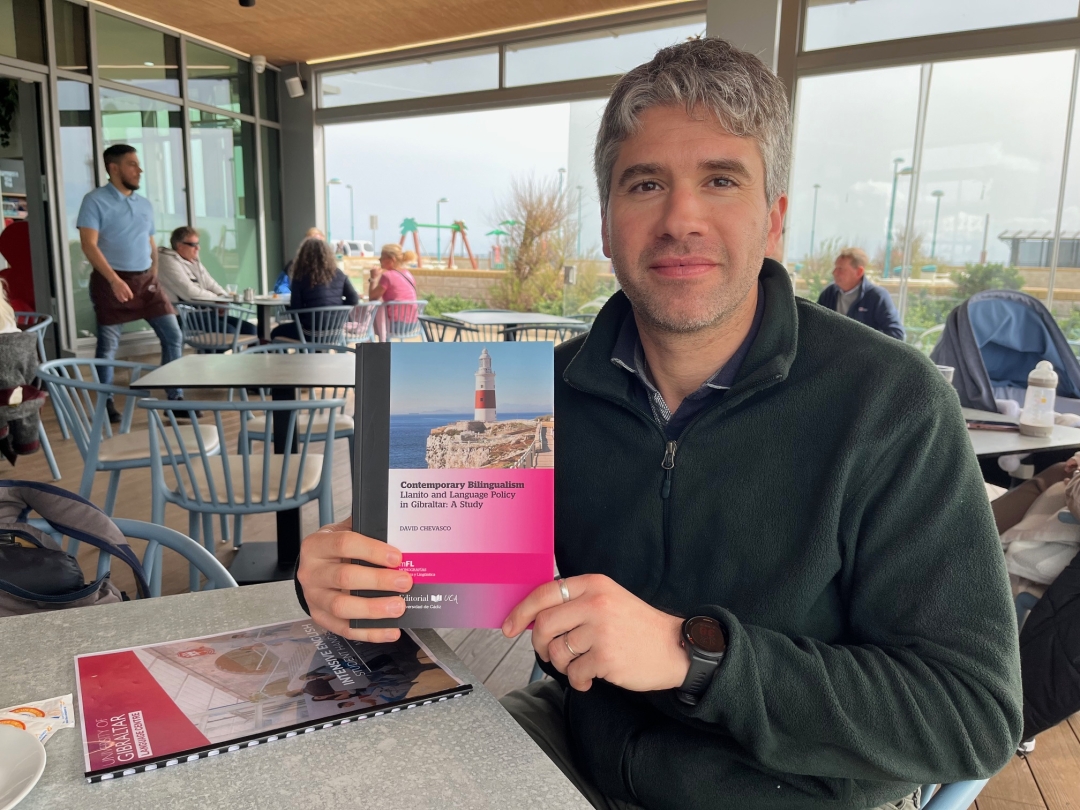
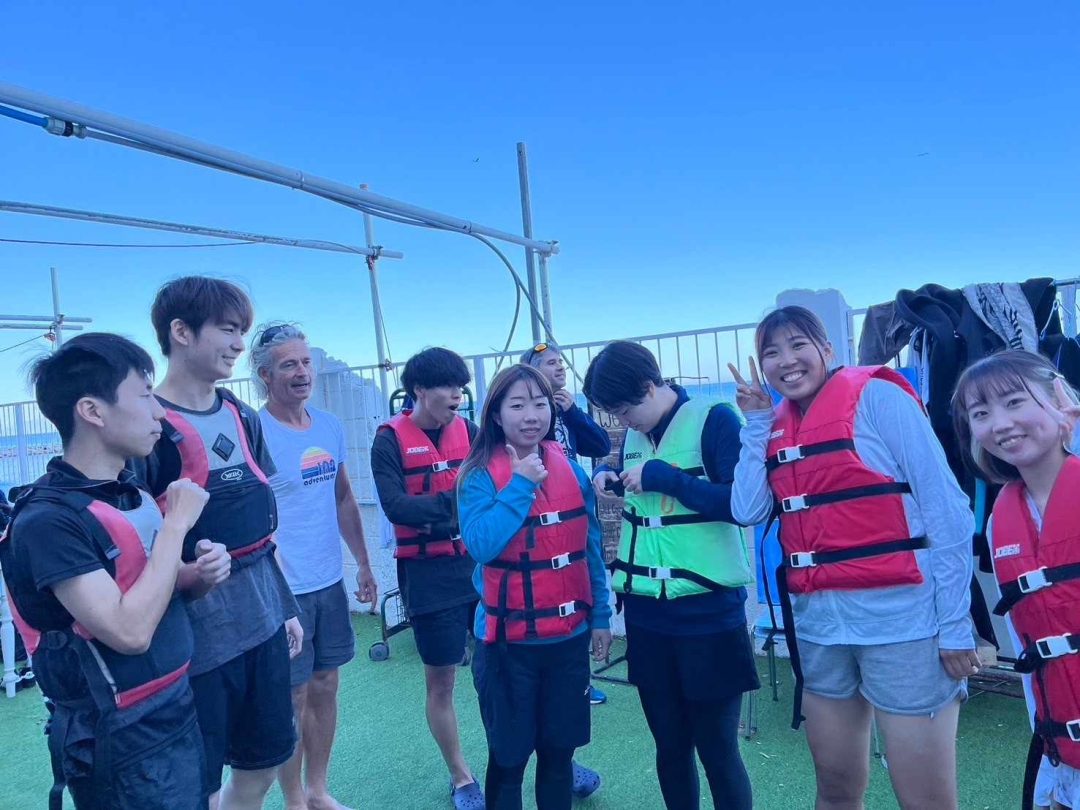
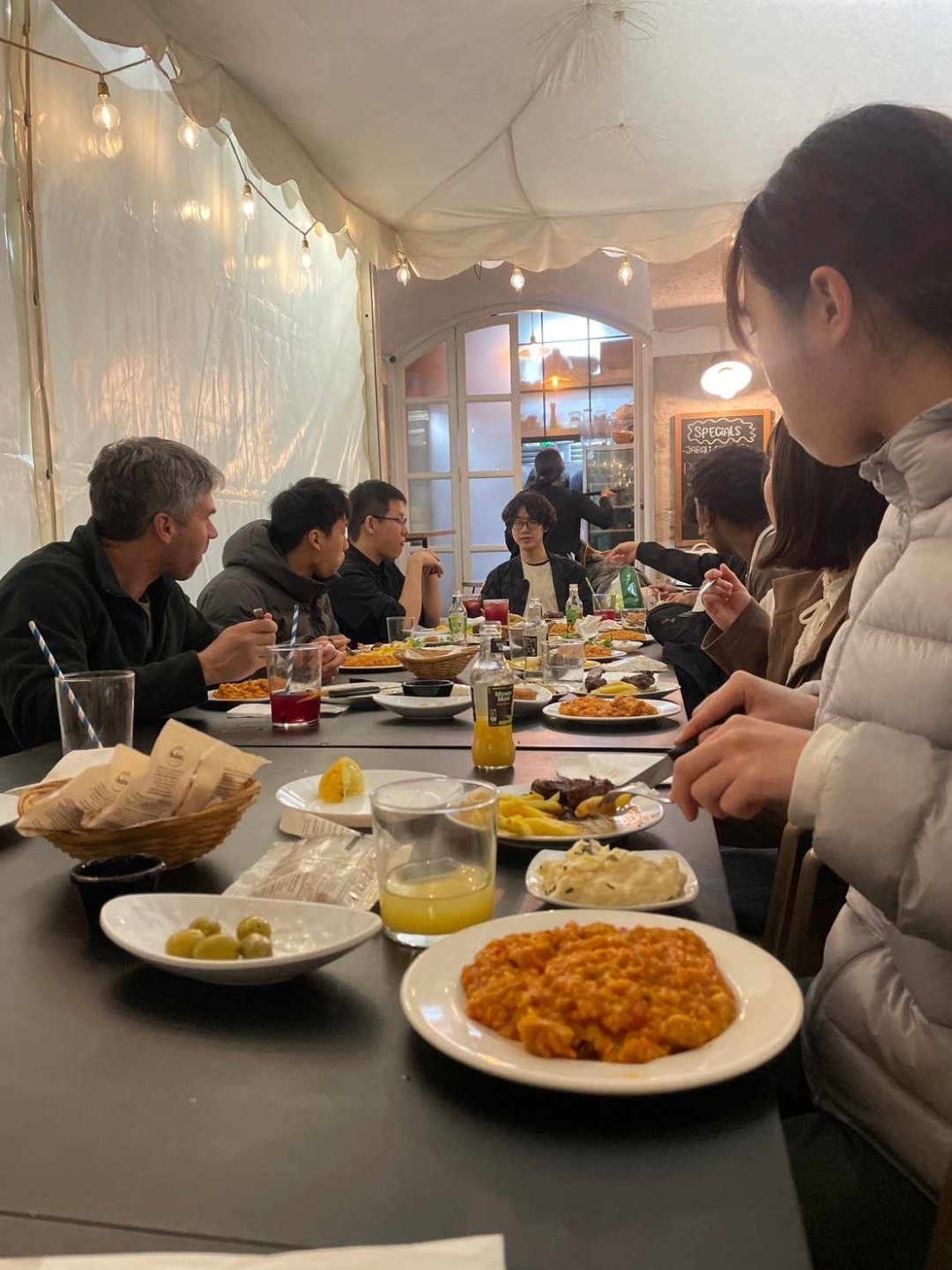
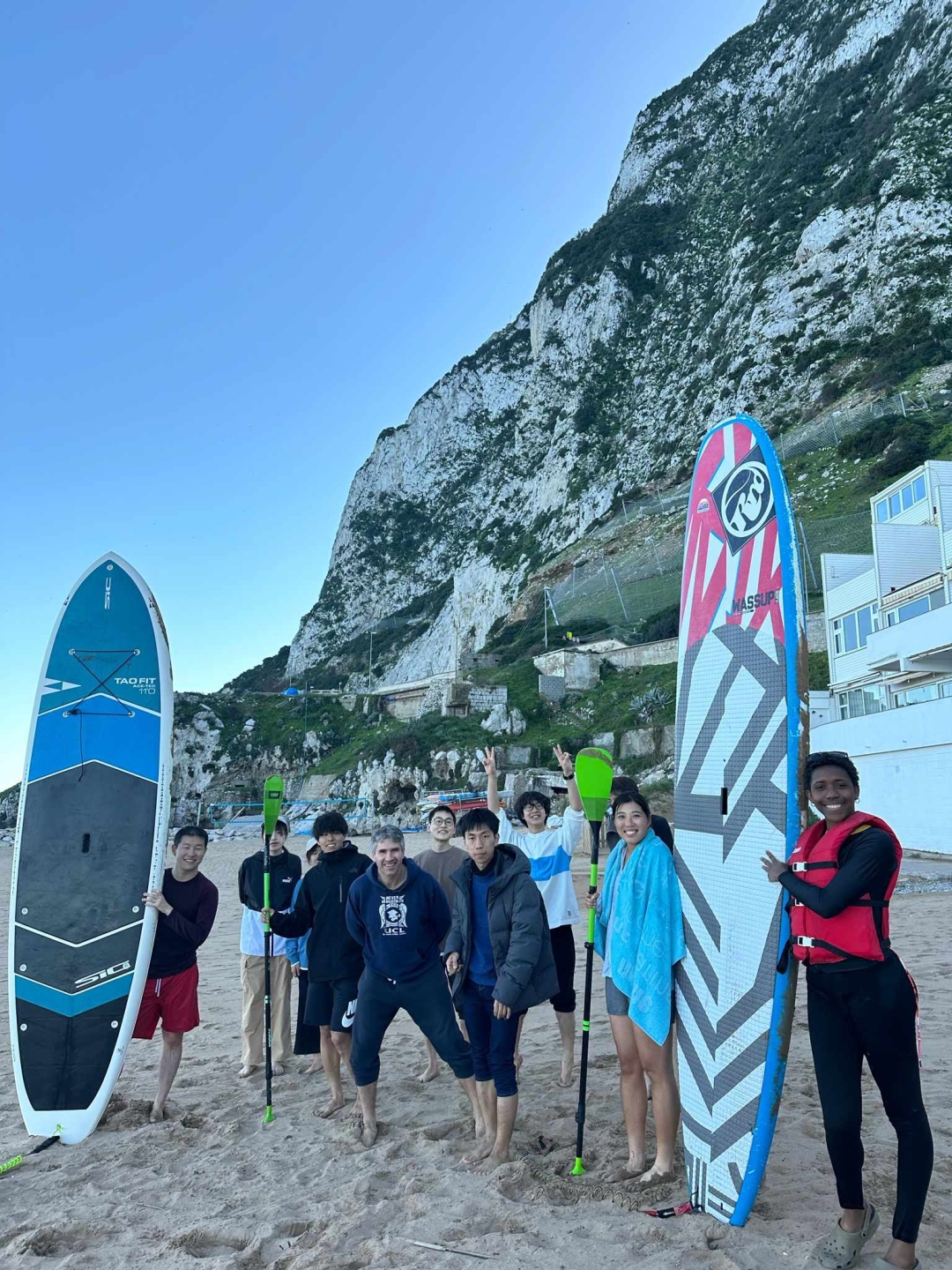
Latest News
- Minister Arias-Vasquez Responds to Unite the Union Health Spokesperson’s May Day comments
- Spring Cultural Programme 2025
- David Walliams Sets Stage For Upcoming Literary Festival
- Concerts By Candlelight Series Continues With Enchanting Evening At St Michael’s Cave
- Government Trials Digital Platforms For Compliments And Feedback
- Man Charged Following A Series Of Burglaries
- Employment Act Amendment “Important, Welcomed and Timely”, Says Unite
- Government Tables Bill to Amend the Employment Act to Guarantee Workers’ Rights in Law
- Victorian Association To Join Gibraltar’s Heritage Week Celebrations
- Domiciliary Care Town Hall – Update




